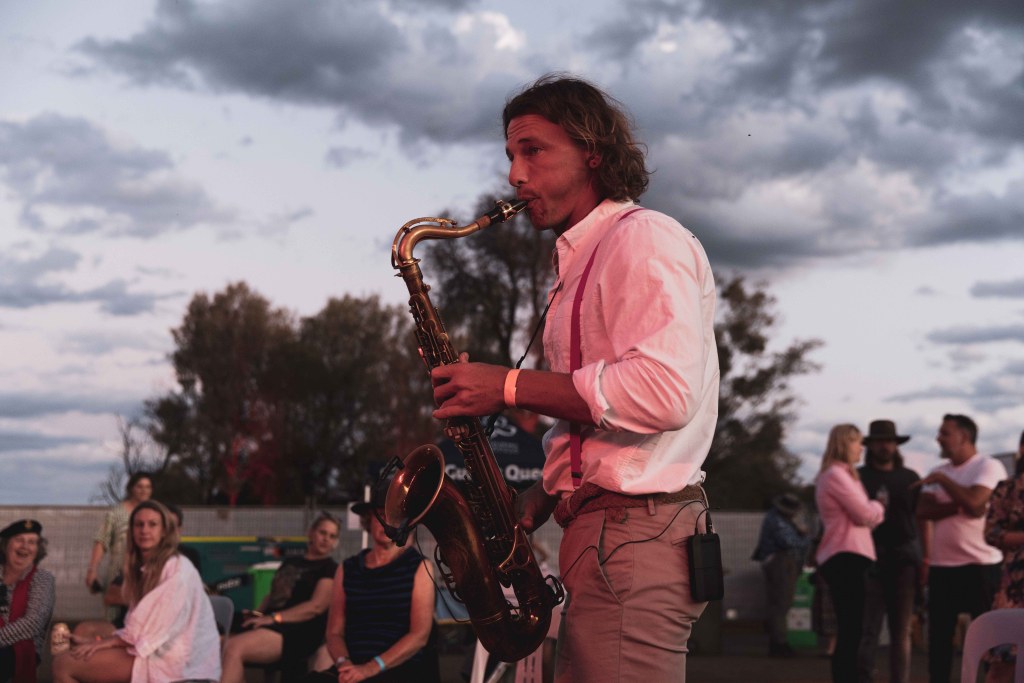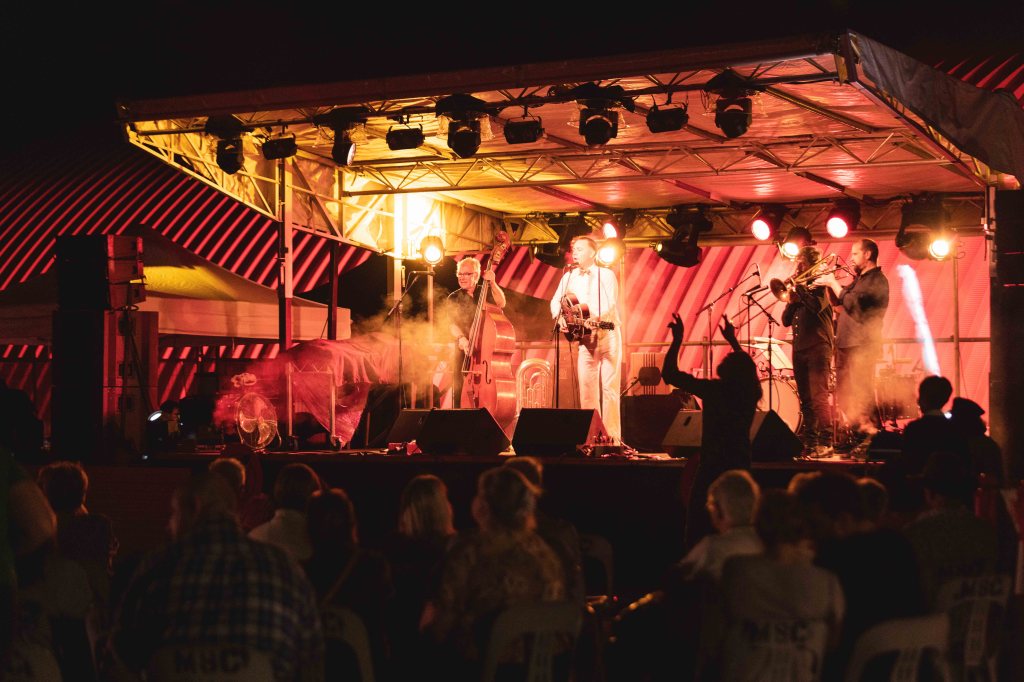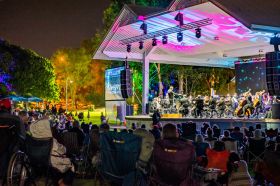In April, Queensland Music Festival (QMF) will embark on its Queensland Music Outback Trail, spanning half a dozen towns in Queensland’s southwest and featuring a range of guests, including songwriter Tori Forsyth. The trail model marks a relatively recent innovation in QMF’s history, which is now a very different organisation than just a few years ago.
2024 is the Queensland Music Festival’s 25th year. The organisation has operated as a biennial festival for 22 of those years. 2019 marked the final ‘festival’ of old, as Katie Noonan’s tenure as Artistic Director ended, and the board did not seek a replacement for her position. Joel Edmondson took over as CEO and Creative Director. Edmondson officially left the position at the end of 2023, having transitioned the company through COVID into new funding and a new programming model.
QMF hosts a substantial history of deep engagement with regional Queensland, connecting with over 100 communities and an audience of over a million. Acting CEO Daryl Raven says the Music Trails are about extending and deepening that history of engagement. Funding from the Department of Tourism, Innovation and Sport has meant a new assessment of QMF’s programming and structure while still aiming to hold on to the organisation’s values in communal and local culture.
The perennial problem of sustainable regional engagement
The Outback Music Trails operates as a mobile festival, travelling through different regional centres with a small collection of dedicated artists. In 2023, Queensland Music Festival delivered their ‘complete’ planned calendar of six total trails (comprising sixteen events) for the first time.
Leadership change and COVID-19 in early 2020 sparked a profound shift for the company. In looking for ways to engage with regional centres beyond a biennial festival model, Raven says the questions dovetailed nicely with a change in Queensland government rhetoric. As Brisbane moves towards the Olympic Games in 2032, the government sought straightforward ways to connect Brisbane with regional Queensland. New funding partnerships between Tourism and Arts Queensland are embodied in the QMF Music Trails.

But Raven is aware of the ‘fly-in-fly-out’ stigma of metropolitan artists in regional centres, and says the company is looking for ways to make their impact meaningful to local audiences and artists.
Talking to ArtsHub, Raven says the number of internal QMF staff has doubled in the last year, and the total number of engagement staff has risen from two to eight. It’s remarkable growth for 2024, when high-profile festivals such as Dark Mofo are pausing under the pressure of escalating costs.
Funding from Tourism Queensland has meant QMF has survived and expanded. Raven is frank on the fact that the funding ‘provides us a position of privilege. We can be resilient and more engaged in a national climate where events are struggling.’
Balancing commercial headliners with local artists and stories has become the central task of producers across the trails. For example, the 2023 ‘Tropics’ trail began with ‘Shine on Gimuy’ in Cairns, featuring a Calling Country ceremony. It included the launch of ‘Deep Wisdom’ talks with scientists and Indigenous knowledge holders, and light installations and soudcapes. The trail concluded with a performance from Jessica Mauboy at the Yarrabah Music and Cultural Festival.
‘Creating relationships with local First Nations groups is a priority and transformative,’ Raven says, citing the organisation’s work with many Elders invited to give Welcomes to Country for the first time in their communities. Over half of the artists featured in 2023’s music trails were First Nations.
Representative programming is also essential to Raven. Concerts are deliberately programmed to feature commercial headliners with locals, and an appropriate balance of female and First Nations talent.
The difference of an Outback audience

Songwriter Tori Forsyth is set to feature in the Outback Music Trail for Queensland Music Festival in 2024. Normally residing on the Sunshine Coast, the nine-day trail begins in Goondiwindi and concludes in Roma, through small towns such as Quilpie, Tambo and Charlotte Plains. It’s new territory for Forsyth, although she’s previously played regionally across the country and is excited to meet audiences.
‘In coastal cities, the venue will be packed at a typical pub gig, but you’re often background noise. The audience is used to live music. In regional centres, I find they’re often so surprised that someone is there and they listen to the music. You have a whole relationship with them. In those towns, concepts of community are more prevalent. The audiences are more curious and open.’
Forsyth has welcomed the opportunity to work with QMF. Post-COVID, she says that gigs started to pick up in 2023, but live music is still recovering. ‘Stadiums are filling out,’ she told ArtsHub, ‘but that middle tier of working musicians still finds it hard to attract audiences. We aren’t doomed by any means. I think the tide will turn. But it’s slow.’
For Raven and QMF, providing pathways and new audiences for Queensland artists such as Forsyth is essential to their programming.
In an age where organisations are forced to innovate or die, QMF has upended almost all its operations to survive and expand. They’ve done so through programs like the music trails while honouring the Festival’s legacy and values. Speaking to ArtsHub, Raven is clear that the delivery of the trails in 2023 was only the beginning of a new chapter for QMF’s history.
‘Our government partnerships mean the Queensland Music Outback Trails are resilient, and the impact that they drive can be relied upon in the communities, where the benefit is immense,’ he concludes.





